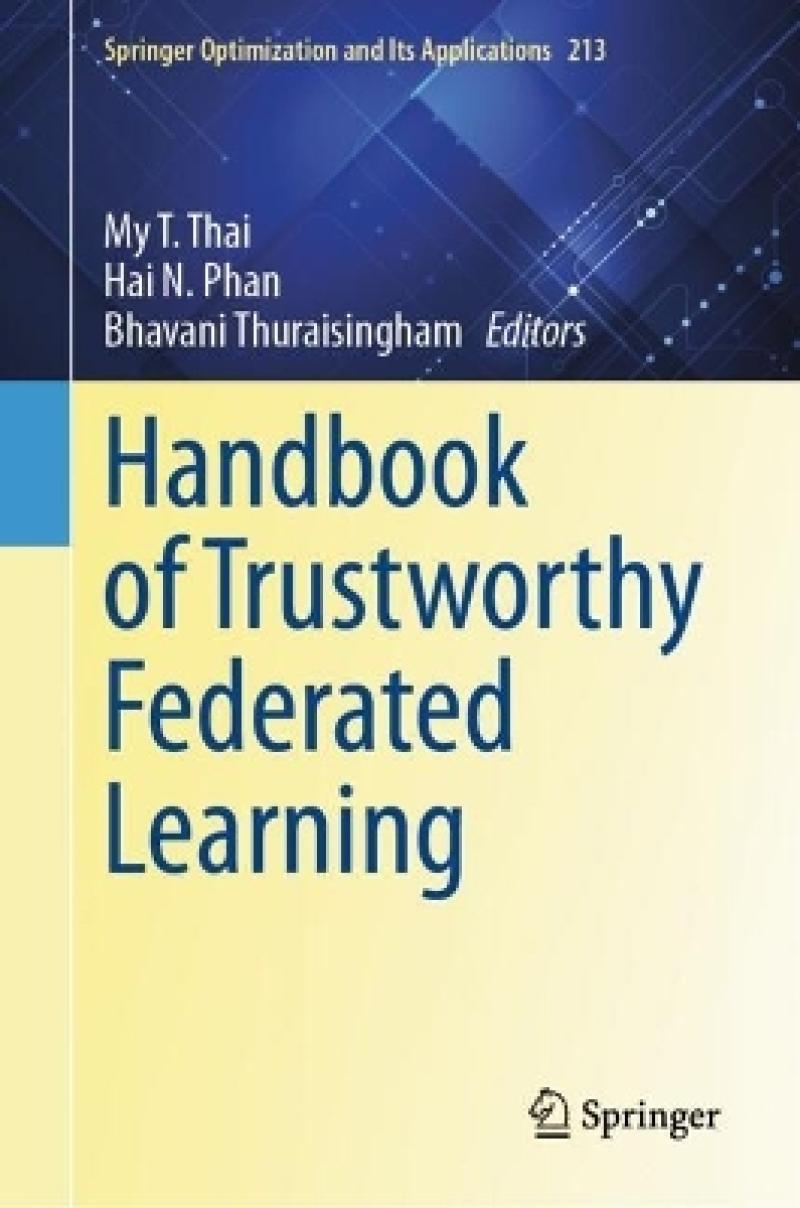Produktdetaljer
Biographical note
My T. Thai is a Research Foundation Professor of Computer & Information Sciences & Engineering and Associate Director of UF Nelms Institute for the Connected World at the University of Florida, USA. Dr. Thai has extensive expertise in Trustworthy AI, Security and Privacy, Network Science, and Optimization. She has published 7 books and over 300+ papers in leading academic journals and conferences with severable best papers awards from the IEEE, ACM, and AAAI. The two latest ones are AAAI 2023 Distinguished Papers Award and 2023 ACM Web Science Trust Test-of-Time Award. Dr. Thai is the recipient of various awards, including DTRA Young Investigator Award and NSF CAREER Award. In addition, Dr. Thai is TPC-chairs and general chairs of many IEEE international conferences and on the editorial board of several journals. She is currently the Editor-in-Chief of the Journal of Combinatorial Optimization (JOCO), the IET Blockchain journal, and a book series editor of Springer Optimization and its Application. Dr. Thai is a Fellow of IEEE.
Hai N. Phan is an Associate Professor at the NJIT. Dr. Phan’s topic of interest mainly concerns privacy and security, machine learning, health informatics, social network analysis, and spatiotemporal data mining. Dr. Phan received his Ph.D. in Computer Science from the University of Montpellier 2 in October 2013. Dr. Phan has established a strong expertise in the field, i.e., privacy and security, ML, and health informatics, with over 47 publications. Many of them were published at leading venues, including ICML, ECML, AAAI, IJCAI, ACM SigSpatial, ACM Multimedia, etc., with several best papers, i.e., IEEE ICDM’17, Springer CSoNet’19, Springer CSoNet’18, ACM in preserving scalable DP and LDP in deep learning, such as auto-encoders, CNNs, continual and adversarial learning, network embedding, language modeling, certified robustness against model attacks, representation learning, and FL.
Bhavani Thuraisingham is the Founders Chair Professor of Computer Science and the Executive Director of the Cyber Security Research and Education Institute at the University of Texas at Dallas. Dr. Thuraisingham has 35+ years of work experiences in the commercial industry (Honeywell), Federally Funded Research and Development Center (MITRE), Government (NSF) and Academia. She has conducted research in cyber security for thirty years and specializes in applying data analytics for cyber security. Her work has resulted in over 100 keynote addresses, 120 journal papers, 300 conference papers, 15 books, and 8 patents. She is a Fellow of ACM, IEEE, AAAS, NAI, and IMA.
